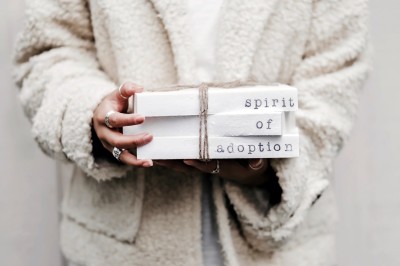My adoption was not plan B

Last year’s Dobbs decision to overturn Roe has reignited the fiery debate surrounding abortion rights, but it has also exposed another critical dimension of this debate: our nation’s increasingly polarizing views on adoption. Currently, one unwelcomed voice in the discussion belongs to the grateful adoptee.
I am unapologetically thankful to have been adopted.
I’ve heard all kinds of comments about adoption in my lifetime — some well-intentioned but ill-informed, others thought-provoking or curious, and some downright funny. But since the Dobbs decision in 2022, the comments have morphed from ignorant to hostile. This year I’ve heard, “You belong with your birth family” and “You should have been aborted” and everything in between. Ironically, most of these comments have been made by people who have neither experienced adoption themselves nor chosen to adopt.
While everyone is entitled to their opinions, it’s essential to understand that adoption is a multifaceted and deeply individual experience that defies easy generalization. I’ve come to understand that the spectrum of wounds and healing within my community is vast, and each story is as unique as the individuals who tell them.
But grateful adoptees are equally deserving of a voice in this discussion. There are more of us than you might imagine who don’t want an apology stamped on our lives.
My adoption was not Plan B. It was not a fallback plan but rather a unique and beautiful path to the life I now have. Like many adoptees, my journey into adoption began with a birth mother facing complex circumstances, choices, and emotions. Her courageous decision to carry and then surrender me was a deeply thoughtful and selfless act. And although I don’t love every detail of my story, it is mine, and I have accepted it as a gift with all its painful consequences and messy imperfections.
Many in this country would seem to prefer that I be chronically dissatisfied with my life. If I mention being thankful for my adoption, they are quick to point out that every adoption story includes loss.
Yes, it does, as does every human story. While it's true that some adoptees spend time in psychiatric hospitals and addiction programs and attempt suicide, what if the ongoing injury is less about the initial loss and more about how we learn to interpret that loss?
Being repeatedly told your life is a mistake is generally unhelpful. What if, instead of offering only two choices — ignore the loss or be defined by it — we learn to carry the loss differently? What if we could identify the systems and voices that are actually perpetuating the trauma?
Years ago, I chose to believe that it’s impossible to accept the details of my life if I can’t accept being purposely placed into it. So I grieved the sorrow woven into my life, but I quit allowing it to be my whole story. I refuse to be identified by my pain. This isn’t settling — this is being settled in a story that is both hard and good.
A life that includes trauma is still worthy.
If I believe my adoption is responsible for everything wrong in my life, my adoption will always be something I resent. And this one life I’ve been given is too beautiful and too brief — and cost my birth mother too much — to stay stuck in the pit of resentment.
So, I accept my life as a gift. I have so much for which to be thankful. Adoption has given me opportunities to grow, learn, and appreciate the diverse ways families are formed. Adoption has gifted me a sense of belonging and an unshakable certainty of my identity.
The grateful adoptee’s voice deserves to be heard, understood, and embraced by a world that continues to evolve in its understanding of what it truly means to live.
It is my hope we will improve the adoption conversation. By fostering empathy, encouraging dialogue, and seeking to understand every perspective within the adoption community, we can have more honest conversations about the hard parts, dispel unhelpful misconceptions, and pave the way for a more compassionate society for adoptees, birth parents, and adoptive families. And we can offer better, brighter hope for many kids who still want and wait for their story to include adoption.
Adoption as a viable alternative to abortion is not simply a tidy political narrative, it’s my story. And I’m deeply grateful for it.
Trisha White Priebe handles communications for the non-profit Lifesong for Orphans, which serves over 10,190 orphaned and vulnerable children worldwide through financial adoption assistance, foster care support, church and ministry partnerships, and international orphan care.



























